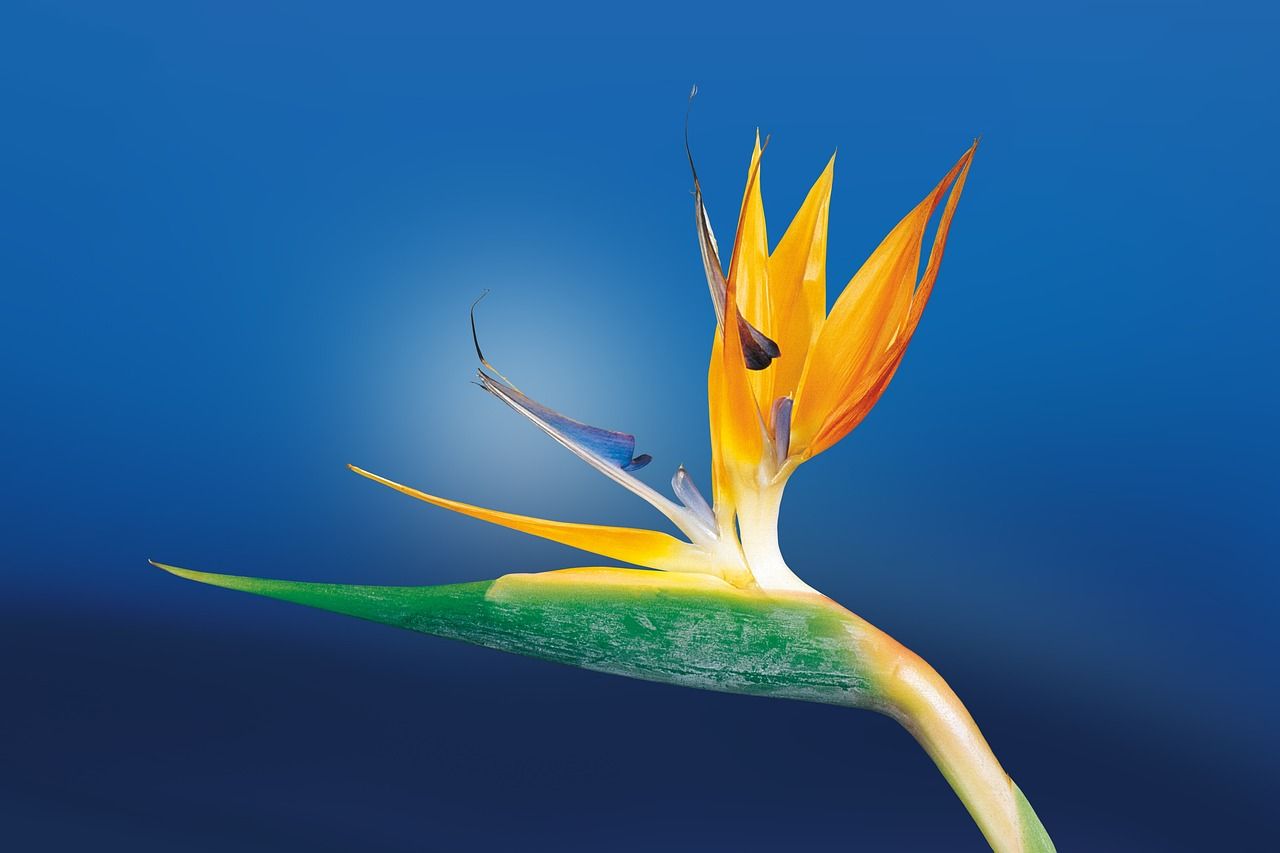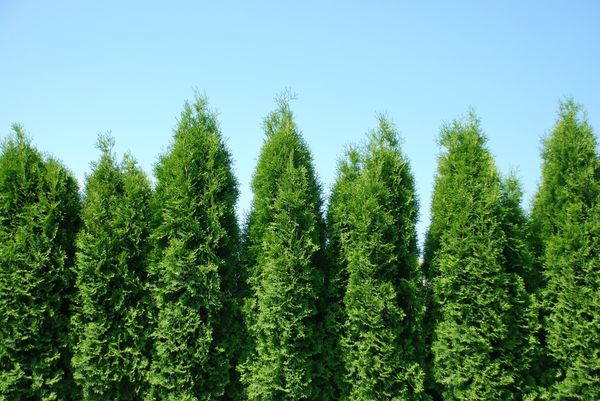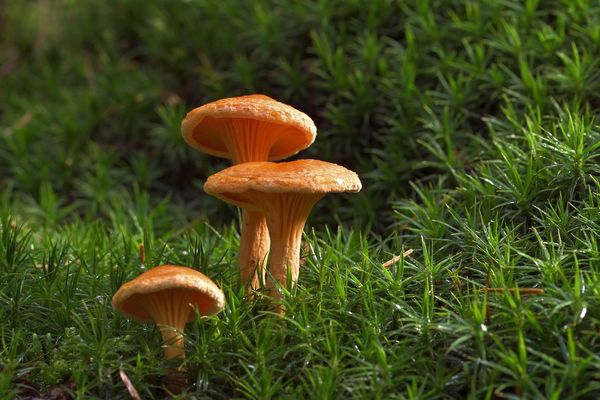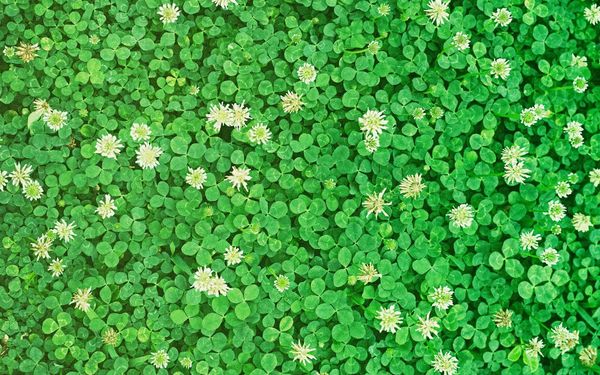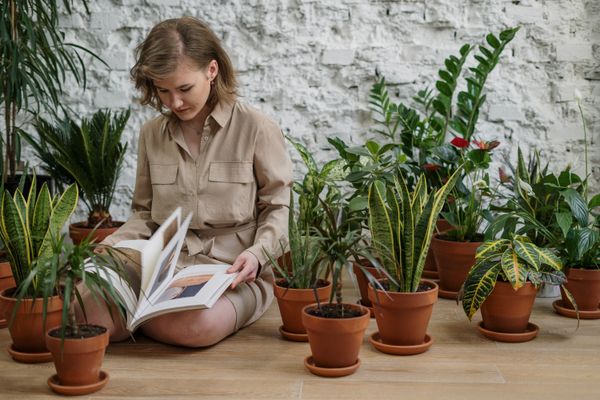Strelitzia Regniae, often known as the bird of paradise, is a native of South Africa. The flower's similarity to a lovely bird of flight gave it its name. They make excellent houseplants since they are resilient and low-maintenance.
Are cats and dogs hazardous to Bird of Paradise? This is a query that requires an answer, particularly if you want to buy one of these magnificent plants.
Here's all you need to know before spending time and money on getting a pet if you have one or more interested (and frequently greedy) creatures running around your home.
Can Bird of Paradise Affect Cats Or Dogs?
Cats and dogs cannot tolerate Bird of Paradise plants, unfortunately. If this plant is taken, anticipate symptoms like diarrhea, vomiting, and dizziness from dehydration. The toxins in this plant induce gastrointestinal discomfort.
The good news is that your pet's diet is unlikely to be the cause of its untimely demise. They have a bitter flavor from a chemical called tannins, which should stop your pet from eating many of them.
Cats Are Hurt by Bird of Paradise
Cats are naturally curious animals so they would be drawn to this plant. Sadly, cats cannot consume birds of paradise. Its consumption might result in nausea, diarrhea, vomiting, and confusion. You should keep your pets away from these plants.
If you are concerned about your cat's potential interest in this plant, I recommend storing it inaccessible to your cat.
Pet dogs or other animals'' reactions to birds of paradise
Whether you have white, crimson, Mexican, or any other kind of bird of paradise plants, keeping canines and other pets away from them is important.
The hydrocyanic acid in Bird of Paradise will hurt your pet if consumed.
For example, a dog that consumes the plant's floral component may experience symptoms as quickly as 20 minutes later.
Locate a high shelf or a place where your pet is not allowed so they are out of their reach.
What Component of the Bird of Paradise Is Toxic?
Cats and dogs should not consume any part of the Bird of Paradise plant. Animals' gastrointestinal systems are known to be irritated by the toxin tannin, which is present in the blooms.
When cultivating these plants outdoors in environments that mimic their native habitats and when blooming is more readily accomplished, use particular caution. The good news is that this plant seldom blooms inside, which results in decreased toxicity levels (for dogs and their owners).
One such poisonous substance found in these plants is hydrocyanic acid. When the leaf or stem bites from unwary pet tears, the leaf contains a poison created by mixing chemicals and enzymes.
Flowers and Seeds
The most poisonous parts of this plant are the seeds and blooms. These plants are tropical. Hence they seldom grow under ideal circumstances for blooming when cultivated inside. As a result, their levels of toxicity are reduced.
Leaves
The hydrocyanic acid toxin is present in the leaves. Prussic acid poisoning, often in animals, may result from ingesting this acid. Rapid breathing, excessive salivation, diarrhea, and vomiting are all symptoms.
Call your neighborhood veterinarian or the ASPCA poison control hotline if your pet exhibits any of these signs.
Is a Bird of Paradise Plant Poisonous?
Toxic, they irritate the digestive system and may make breathing difficult; birds of paradise. However, they are not known to harm domestic animals if they get prompt medical attention.
Nevertheless, if you are concerned about your dogs mistreating them, consider adding one to your collection.
How to Handle a Poisonous Plant If Your Pet Eats It
Some typical signs of plant poisoning in cats and dogs include mild nausea, lethargy, lack of coordination, diarrhea, and vomiting. If your cat or dog has eaten Strelitzia seeds, fruits, or leaves, take them to the vet immediately.
Contact the ASPCA's poison control hotline or visit their website. This is a valuable tool in case your dogs devour any indoor plants.
What Should I Do If My Pet Begins to Eat My Indoor Plants?
It would be best to prevent your dogs from accessing your bird of paradise plant. You may do this in several ways, such as building a cat-proof terrarium, purchasing repellents, placing your plants out of reach, or offering them safe alternative plants if they want to graze.
An eco-friendly pet repellant is another option. Pick an essential oil you prefer and combine it with three-quarters of a cup of water and 12 drops since cats don't appreciate the scent of eucalyptus, lavender, lemongrass, or peppermint. Spray the mixture on your plants after shaking up the bottle.
You may use the same environmentally friendly repellant for dogs since they don't enjoy the scent of citrus fruits. Alternatives to eucalyptus, lavender, peppermint, etc., include grapefruit, lemon, or orange essential oils.
Put your plants in terrariums if you are concerned that your pets may consume them while you are away. These are lovely methods to display your plants and safeguard your pets simultaneously.
Consider putting your cat in a room without plants, your dog in a kennel, or your plants in a space that is off-limits to your pets.
How Can I Secure My Pet Bird of Paradise?
Even while there is no method to render the plant non-toxic, there are steps you may take to prevent yourself from ingesting it again. Moving your plants out of reach is an excellent place to start when you can't keep an eye on your dogs or are not home.
Please put them in a greenhouse or a space where your animals can't get them. Clean up any fallen leaves safely type ensure your pets' safety even while your plant is out of their reach.
Additionally, I've seen friends place tiny plants on slender window sills out of the reach of animals or hang larger plants in hanging baskets. Protecting your pets requires a lot of additional work and will surely make irrigation more complicated.
Understanding Bird of Paradise Toxicity
The Bird of Paradise plant, also known as the bird's tongue flower, is a visually striking addition to any collection of common houseplants. However, pet owners should be aware of its hidden dangers. This plant contains gastrointestinal irritants that can be harmful if a cat ingests even a small portion. The ingestion of these parts can lead to an upset stomach in cats, characterized by symptoms like nausea, vomiting, and diarrhea. It's vital for pet owners to recognize these symptoms early to prevent further health complications in their feline friends.
If you suspect your cat has ingested part of a Bird of Paradise plant, it's advisable to switch their diet to a bland diet temporarily. This approach helps to settle their stomach and supports their recovery from any gastrointestinal distress caused by the plant. While the toxicity level of the Bird of Paradise is generally considered mild, it's crucial to prioritize creating a cat-safe environment at home. Keeping such potentially harmful plants out of reach or opting for safer, non-toxic plant alternatives can go a long way in ensuring the health and safety of your beloved pets.
Other Considerations
In the realm of plant lovers, understanding which green additions are safe for our furry friends is paramount. The Bird of Paradise bush, with its striking and ornate flowers, might be a tempting pick for home décor, but pet parents must be wary. While there are many non-toxic plants available, such as the jade plant, that can enhance the beauty of our homes without posing a risk, the Bird of Paradise is not among them.
If your cat eats this plant, symptoms can manifest in the form of cat vomit or even more severe reactions, which is why it's crucial to always consult veterinary medicine professionals when in doubt. Similarly, plants like aloe vera, which are often celebrated for their health benefits, can be harmful if ingested. As a dedicated pet parent, always prioritize the safety of your furry friend when choosing plants for your home.
Conclusion
It's essential for pet parents to recognize that the vibrant Bird of Paradise, also known as crane flower, is potentially toxic to cats and dogs. Despite the appeal of these tropical plants in our gardens or homes, they rank among those beautiful yet mildly toxic plants to our furry friends. Paradise poisoning, resulting from ingestion, can cause varying levels of discomfort in your pet, which can last a few days as the toxins work their way through the animal's system.
Toxic plants, including the crane flower, should be kept out of reach of pets or, better yet, avoided altogether in homes with curious cats or dogs. As pet owners, it is our responsibility to create a safe environment for our animals. When it comes to identifying poisonous plants, such as the Bird of Paradise, knowledge and prevention are your best defenses against paradise toxicity.
If you suspect your pet may have ingested a toxic plant, promptly seek the guidance of your local veterinarian. They can provide treatment to alleviate symptoms and possibly monitor your pet overnight, ensuring the toxins are safely eliminated from your animal's system. Always remember, while the Bird of Paradise is a stunning addition to any garden or home, the safety of our pets should never be compromised for aesthetics.

